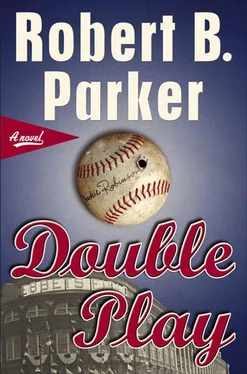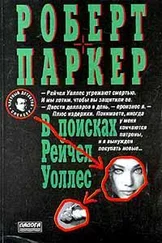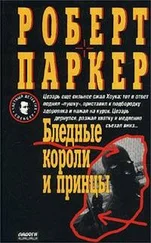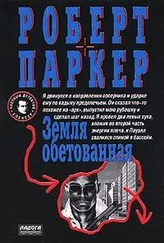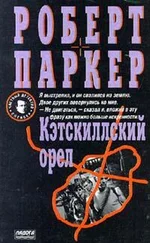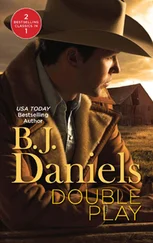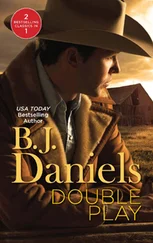At Twenty-third Street, Burke managed to flag a cab and they were in out of the rain.
“I don’t want to go home,” Lauren said.
Her voice was odd, Burke noticed, more excited than fearful. She sat close to him in the back seat of the cab.
“Where would you like to go?” Burke said.
“The park.”
“Central Park?”
“Yes. I love the park in the rain.”
Burke leaned forward and spoke to the cabbie.
“Ask him if he knows where we can get a bottle of gin,” Lauren said.
The cabbie knew where to get gin, but it would cost them fifty dollars. Burke gave the cabbie fifty dollars. He stopped at a darkened liquor store on Eighth Avenue and went out of sight down an alley to the side and reappeared with a pint bottle of Gilbey’s Gin.
They sat under the umbrella, in the light steady rain on one of the rock outcroppings on the west side of the park near Sixty-fourth Street and sipped gin from the bottle. Burke sipped very little.
“Don’t you like gin?” she asked.
“I don’t,” Burke said.
Sitting in the woods, in the dark, in the rain, he watched for movement in the park. It made him think of Bloody Ridge.
“What do you like?” Lauren said.
“We’ve been through that,” Burke said.
Lauren drank some gin.
“Do you like me?” Lauren said.
“Sure.”
“I could make you like me a lot,” she said.
Burke didn’t comment. Lauren drank some gin. The nighttime park was full of sounds. Squirrels perhaps, night birds. Burke smiled to himself. Rats.
“Louis used to lace gin with ether,” Lauren said. “It’s quite an exotic feeling.”
Burke nodded. None of the park noises sounded human. Lauren drank more gin. She was drunk. But she wasn’t sloppy. She was a contained drunk. Almost dignified. She handed him the gin bottle. He didn’t drink. She slid away from under the umbrella and stood up suddenly. She was steady enough on her feet. She had risen gracefully. She took her rain hat off and threw it away from her. Burke heard it skitter on the rocks. In the dim light that drifted in from the West Side, Burke could see the rain begin to glisten on her thick hair. She unbuttoned the raincoat and let it slide down her arms into a heap on the rocks behind her. She was looking steadily at Burke. He was pretty sure her eyes had gotten bigger. She unzipped her white dress and pulled it up over her head, and bending forward, slid it down her arms and dropped it on the rock. She wore no slip. Her white underwear had lace trim. She wore stockings and a garter belt. Still looking straight at Burke she smiled and raised her arms over her head and touched the backs of her hands together. The rain slid down her half-naked body. Her thick hair was straightening as it got wetter.
“Shall I go on?” she said.
“Up to you,” Burke said.
If there were ambient sounds in the park, he no longer heard them. He saw nothing moving.
“Would you like to take off the rest?” Lauren said.
Burke’s voice sounded a little hoarse to him.
“If you want them off,” Burke said, “you’ll take them off.”
“Yes,” she said. “I will.”
She slipped out of her underwear and stood naked in the rain except for her garter belt and stockings.
“Do you like garter belts?” she said.
“Sure,” Burke said.
“I love them,” Lauren said. “They’re so... cheap.”
Burke felt himself clench. His breath was quick and shallow. He thought of Bloody Ridge. She stood before him, her arms above her head, her face turned up, the rain making her naked skin slick.
Without looking down she said, “Would you like to fuck me? Here? On the wet ground? In the rain?”
Burke’s throat had narrowed. It was hard to squeeze his voice out past it. He took the .45 out and laid it on the rock close at hand, under the umbrella. He took a deep breath and eased the air out slowly.
Then he said, “Yes.”
I felt very American during the war. I played Paul Robeson’s recording of “Ballad for Americans” often, listening closely so I could remember the lyrics... “In ’76 the sky was red/With thunder rumbling overhead.”
There were soap operas on the radio in the daytime for the women, and adventure serials in the late afternoon so boys could listen to Jack Armstrong and Captain Midnight and Hop Harrigan. I never thought much about it then, but girls probably listened too.
But in the evening we all listened to Jack, Doc, and Reggie on I Love a Mystery. We listened to Jack Benny and Bob Hope and Bing Crosby. We listened to the Shadow. All of us. Children, adults. Once a week, the Lux Radio Theater dramatized popular movies with name actors. Lux presents Hollywood. My memory is that Cecil B. DeMille was the host. He talked in elocution English that had no region. The announcer referred to him as Mr. DeMille.
The Fitch Bandwagon... don’t despair, use your head, save your hair, use Fitch Shampoo. Duffy’s Tavern... Archie the manager speaking, Duffy ain’t here. Wistful Vista. Allen’s Alley. The Green Hornet and Cato. Steve Wilson and Loreli Kilbourne of the Illustrated Press... freedom of the press is a flaming sword, use it wisely, hold it high, guard it well.
We all shared the same love songs, by the same singers. Crosby and Sinatra. Dinah Shore and Dick Haymes. Bob Eberly. Helen O’Connell. Vera Lynn. The Ink Spots. Jo Stafford.
We all believed in love.
LIFE magazine appeared every Monday. It was the unifying force of my childhood. Big format. Pictures. Text. LIFE covered everything. Or seemed to. LIFE was there when it happened and it not only told you what happened but explained it, placed it in context. LIFE wrote about sorority parties and medieval princes and labor strikes and Italian peasants and football games in Michigan. It covered the war in China between Chiang and the Communists. It covered hearings of the House Un-American Activities Committee. It covered debutante cotillions, managing to get some careful shots of pretty girls getting dressed and making up. It covered the Broadway stage. It had a regular feature called “ LIFE Goes to the Movies” that encapsulated a current feature, telling an abbreviated version of the story in pictures and captions. Life presents Hollywood.
LIFE covered the White House and the Congress and big labor and big business. It covered the New York Philharmonic, and life in small Midwestern towns and the urban renewal of Omaha, and proceedings in the British House of Commons, and exploration of the South Pole, all with the measured certainty of an insider. It had access. It was there. It understood.
And always, at the heart of its coverage, shaping every attitude it espoused and certainly every attitude I learned from it, LIFE offered the vision of a robust and pleasant life lived in a bountiful and beautiful land. A fundamental part of that life was marriage, and the clean and happy sex that went along with it. It was the culminating purpose of any boyhood to marry a fresh and bouncy young white woman with good thighs who bathed often and had a great smile... and settle down and never roam and make the San Fernando Valley my home.
I looked forward to LIFE’s arrival each week.
They ate breakfast together in Burke’s apartment at 3:20 in the afternoon. Lauren’s clothes hung drying in the bathroom. She wore one of Burke’s dress shirts.
“Your room is very neat,” Lauren said.
“Yes.”
“And all those books.”
“I’ve had a lot of free time,” Burke said.
Lauren put down her coffee cup and put a cigarette in her mouth. Burke leaned forward and lit it for her.
Читать дальше
